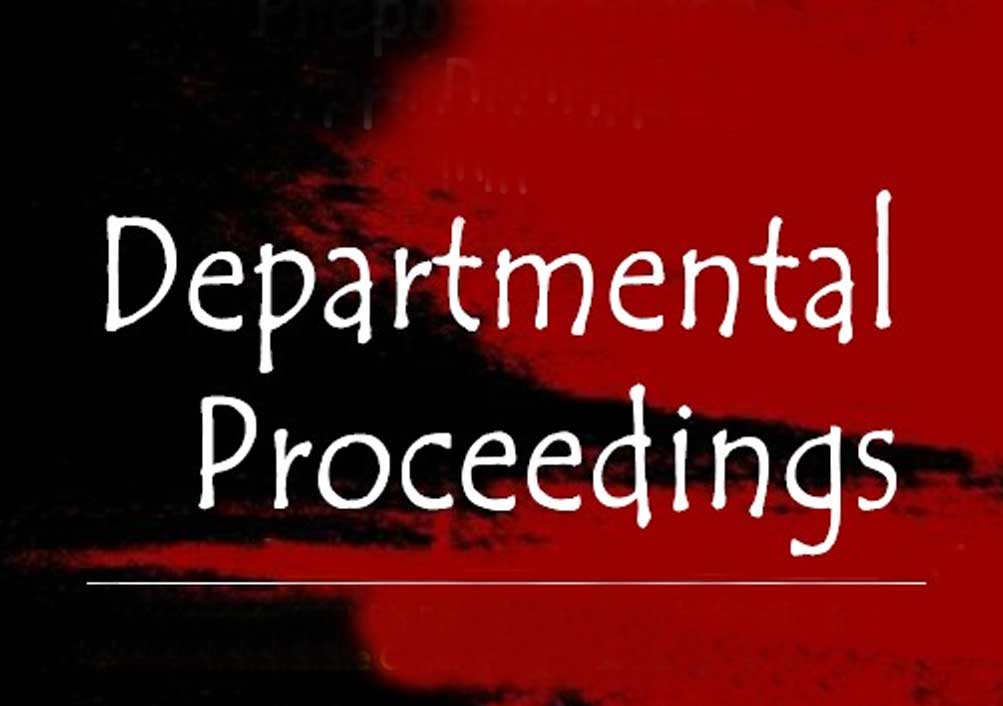Applying test of criminal proceedings to departmental proceedings uncalled for: Apex Court

Read Judgment: Indian Overseas Bank & Ors. V. Om Prakash Lal Srivastava
Pankaj Bajpai
New Delhi, January 21, 2022: While quoting the decision in case of the Top Court in Ashoo Surendranath Tewari v. Deputy Superintendent of Police, EOW, CBI, the Supreme Court has reiterated that the standard of proof in departmental proceedings, being based on preponderance of probability, is somewhat lower than the standard of proof in criminal proceedings where the case has to be proved beyond reasonable doubt.
A Division Bench of Justice Sanjay Kishan Kaul and Justice M.M Sundresh observed that if there is no jurisdictional error or violation of natural justice apparent on the face of the record, there is no occasion for the High Court to get into the merits of the controversy, that too on the aspect of an opinion formed in respect of two sets of signatures where the inquiry was held by an officer of the bank.
The High Court appears to have applied the test of criminal proceedings to departmental proceedings while traversing the path of requirement of a hand writing expert to be called for the said purpose, added the Bench.
Going by the background of this case in a nutshell, Indian Overseas Bank (Appellant) took an ultimate step of dismissal from services as an employee in pursuance of departmental proceedings against Om Prakash Lal Srivastava (Respondent) having found him guilty on various counts inter alia including breach of duty as a custodian of public money and dishonesty, fraud or manipulation of documents. The Industrial Tribunal upheld this decision of the appellant-Bank. However, the Allahabad High Court, observing that five of the charges were not proved, remitted the matter back to the Industrial Tribunal with a limited mandate. Hence, present appeal.
Speaking for the Bench, Justical Kaul observed that the High Court has fallen into an error in directing, once again, the matter to be remitted to the Industrial Tribunal to now seek opinion of a hand writing expert.
When an officer of the bank in the course of departmental enquiry, came to an opinion on a bare comparison of the signatures that there is a difference in the same, then it has to be looked from the perspective of a “banker’s eye”, added the Bench.
“The deposition of Mrs. Meera Srivastava was clear and unambiguous. She was staying in a joint family of which the respondent was a part. She unfortunately lost her husband in an accident. The two drafts were received from his employer and those drafts were kept in custody with the respondent, possibly because he was a banker and the elder brother of her deceased husband. Instead of extending the benefits of the same to her, the respondent went on a path of opening an account jointly in his and his sister-in-law’s name, presenting the drafts, and drawing the amounts with appropriation of the same to himself. Mrs. Meera Srivastava had not even visited the bank to sign the account opening form or the signature cards, nor had she presented the drafts or signed the encashment vouchers. In fact, it is only when she complained about not receiving the amount that the bank inquired into it and, at least, the money was transferred to her”, noted the Top Court.
The Apex Court observed that when the material in respect of other charges emanating from the record of the bank shows the conduct of the respondent which are apparent from the manner of framing of the charges themselves, then the aspect of the other charges could not have been brushed aside.
Therefore, opining that the respondent breached the trust of a widowed sister-in-law as well as of the bank, making it hardly a case for interference either on law or on moral grounds, the Apex Court concluded that the punishment imposed on the respondent cannot be said to be disproportionate.
Sign up for our weekly newsletter to stay up to date on our product, events featured blog, special offer and all of the exciting things that take place here at Legitquest.




Add a Comment